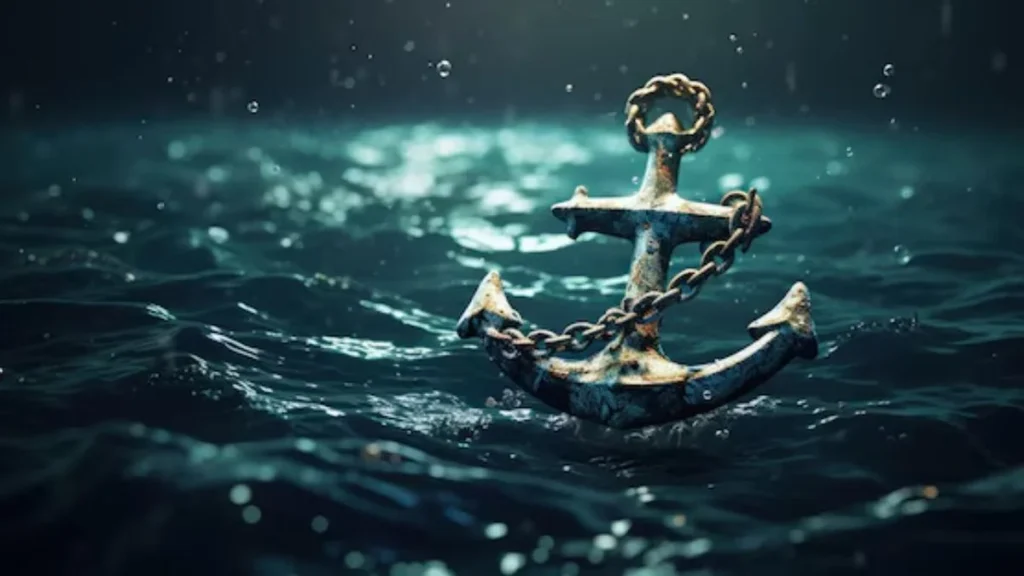The phrase “Fair Winds and Following Seas” holds a special place in nautical traditions. Often used as a blessing for sailors embarking on a journey or to bid farewell to comrades during retirement or ceremonies, the phrase evokes a sense of respect, safety, and good fortune. Although its precise origins remain unknown, “Fair Winds and Following Seas” has come to represent well-wishing sentiments and camaraderie in the maritime community. Whether used within the Navy, the U.S. Marine Corps (USMC), or in personal exchanges, the phrase has woven itself into the fabric of nautical culture.
Origins of the Phrase
“Fair Winds and Following Seas” is often cited as a combination of two distinct expressions that developed over time into a unified phrase. Understanding each part of the phrase helps to fully grasp its significance.
Fair Winds
The term “Fair Winds” is most commonly associated with wishing someone safe passage and good fortune. A “fair wind” refers to a wind that is favorable for navigation and allows the vessel to travel smoothly. According to the Dictionary of American Regional English, the phrase “Fair Wind” means a safe journey or good fortune, typically related to sailing conditions. An early example of the term’s use can be found in Herman Melville’s Moby-Dick, published in 1851. The novel includes a reference where a sailor says, “Let me square the yards, while we may, old man, and make a fair wind of it homeward.” Here, the character hopes for a favorable wind to ensure a safe and quick return.
In this sense, “Fair Winds” is a wish for favorable conditions during a journey, be it on water or in life. The phrase symbolizes optimism and a smooth path forward, something sailors would naturally hope for as they navigated unpredictable seas.
Following Seas
“Following Seas” refers to the condition where waves move in the same direction as the ship’s course, making for a more comfortable and steady voyage. Defined in Bowditch’s American Practical Navigator, “Following Seas” occur when the waves and water currents are in harmony with the ship’s heading, creating a less turbulent experience.
The concept of a following sea is inherently positive for sailors. When waves follow a ship, rather than opposing or crashing into it from the side, the vessel can move more easily, requiring less effort from the crew. It represents smooth sailing, where nature seems to assist in guiding the ship safely to its destination. When combined with “Fair Winds,” the phrase signifies a desire for optimal conditions throughout the voyage.
Fair Winds and Following Seas: Evolution into a Unified Phrase
Although the phrases “Fair Winds” and “Following Seas” originated separately, they have evolved over time to form a unified expression. The modern phrase, “Fair Winds and Following Seas,” is commonly used as a farewell or a blessing, typically within nautical circles. It is often heard during ship commissioning ceremonies, retirements, and other naval events where sailors are honored.
This evolution into a single phrase likely occurred organically, as sailors and other maritime workers began combining these well-wishing expressions into a more cohesive blessing. Together, “Fair Winds and Following Seas” encapsulates the ideal conditions for a journey: favorable winds to speed the ship along and waves that align with the ship’s direction. As sailors often faced harsh, dangerous conditions on the open sea, this blessing offered hope for smooth sailing and safe returns.

Fair Winds and Following Seas in the Navy and USMC
The phrase has become deeply embedded in the culture of the United States Navy and the United States Marine Corps (USMC). As two branches of the military with strong maritime traditions, the Navy and USMC have embraced “Fair Winds and Following Seas” as a part of their heritage.
Navy Usage
In the U.S. Navy, “Fair Winds and Following Seas” is used as a traditional blessing for sailors. It is commonly said when someone is leaving for deployment, retiring, or moving on to another assignment. The phrase serves as a meaningful farewell, acknowledging the challenges of a sailor’s life and wishing them safe passage in all their future endeavors.
The U.S. Navy, with its centuries-old traditions, has always valued symbols and ceremonies, and this phrase fits into the broader context of naval customs. Whether spoken at a change of command ceremony or during the retirement of a veteran sailor, it is a reminder of the shared experiences and camaraderie among those who serve at sea.
USMC Usage
“Fair Winds and Following Seas” is also prevalent in the United States Marine Corps. As the Marines often serve in amphibious roles, closely tied to naval operations, they have adopted much of the Navy’s maritime language and traditions. Marines, like sailors, use the phrase to wish each other well, particularly when a Marine is retiring, transferring to another duty station, or heading into a new phase of life.
The phrase resonates with Marines because it speaks to their experiences on both sea and land. While they may not spend as much time at sea as sailors, the connection to naval tradition remains strong. “Fair Winds and Following Seas USMC” signifies the shared values of service, brotherhood, and the hope for safe travels, whether on deployment or in life.
Fair Winds and Following Seas: When Someone Dies
In addition to being used during retirements and changes of command, the phrase “Fair Winds and Following Seas” is sometimes said when someone dies, particularly someone with ties to the Navy, Marines, or maritime professions. It becomes a final farewell, expressing the hope that the departed will experience peace and tranquility in the afterlife.
For sailors and Marines, the sea holds deep symbolism as both a challenge and a source of peace. Just as the phrase wished for favorable conditions during life, it also offers comfort in death, implying that the person’s journey has come to a peaceful end, with the forces of nature guiding them gently to their rest. “Fair Winds and Following Seas when someone dies” can serve as a fitting tribute to their life and service.
The Symbolism of the Sea and the Sky
The sea and the sky have long been potent symbols in literature, mythology, and religion. In nautical traditions, these elements represent freedom, unpredictability, and adventure, while also being symbols of solace and eternity. “Fair Winds and Following Seas” captures these dual aspects perfectly. The wind represents the sky and the air, suggesting direction, while the sea symbolizes the journey itself, with the waves offering either challenges or cooperation.
For sailors, these natural elements are more than just metaphors; they are integral parts of life. The unpredictable nature of the sea, with its potential for both calm and storm, mirrors the uncertainties faced by individuals in life. In this way, “Fair Winds and Following Seas” becomes more than a mere wish for good weather—it represents the desire for harmony with the forces beyond human control.
Modern Usage of Fair Winds and Following Seas
While the phrase originated in maritime culture, “Fair Winds and Following Seas” has gained traction in various other contexts as well. It is sometimes used at non-nautical retirement ceremonies or when bidding farewell to friends and colleagues who are embarking on new phases of life. The broadening of its use is a testament to the phrase’s universal message: wishing someone well on their journey, wherever that may lead.
In popular culture, the phrase has appeared in literature, film, and television, often in contexts involving farewells or goodbyes. It has also been embraced by organizations and groups that value tradition and camaraderie, as its meaning transcends nautical boundaries.
Conclusion
“Fair Winds and Following Seas” is much more than just a simple nautical phrase; it is a time-honored blessing that conveys good wishes, safety, and fortune to those embarking on journeys—whether they be literal or metaphorical. With its origins rooted in the maritime world, it has evolved into a beloved expression used within the Navy, USMC, and beyond. The phrase captures the spirit of adventure and the hope for favorable conditions, symbolizing a peaceful and successful voyage through life.
From deployments to retirements, and even to farewells in death, “Fair Winds and Following Seas” remains a powerful expression of solidarity, respect, and hope. For sailors, Marines, and all those who take to the sea, the phrase serves as a reminder of the unpredictability of life and the enduring strength of human connection.
FAQs
What does “Fair Winds and Following Seas” mean?
It is a blessing that conveys good wishes for safety, fortune, and favorable conditions on a journey, whether literal or metaphorical.
Where does the phrase “Fair Winds and Following Seas” originate?
Its roots are in the maritime world, where it was used to wish sailors smooth and safe voyages.
Who commonly uses this phrase?
The phrase is widely used by the Navy, USMC, and maritime communities, as well as in broader contexts to signify hope and respect.
When is “Fair Winds and Following Seas” typically said?
It is often used during deployments, retirements, or farewells, including in remembrance after death.
What does the phrase symbolize?
It symbolizes the spirit of adventure, hope for favorable conditions, and the strength of human connection.
Why is “Fair Winds and Following Seas” meaningful to sailors and Marines?
It reminds them of life’s unpredictability and serves as a gesture of solidarity and respect within their close-knit communities.








